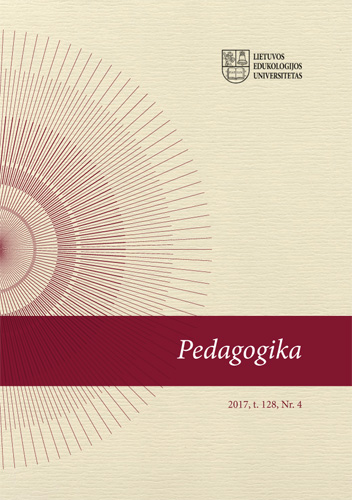Mokinių priklausymo mokyklai jausmas: mokyklos įtaka
Student’s Sense of School Belonging: School Influence
Author(s): Rita Dukynaitė, Jolita DudaitėSubject(s): Education, Higher Education , Educational Psychology, Personality Psychology
Published by: Vytauto Didžiojo Universitetas
Keywords: sense of school belonging; educational environment; school environment; social membership; school influence;
Summary/Abstract: Today, the lead role of family and school in personality formation and its further development is widely recognized. Family is the centre of social and emotional world for small children. However, in the adolescence period, students start seeking recognition at school and among friends; the need for involvement, achievement and leadership shows up. Sense of school belonging is a concept which defines the extent to which students feel personally accepted, respected, involved and supported by parents, teachers, other community members in school environment. Student’s sense of school belonging primarily depends on teachers; however, acceptance and appraisal of a child by classmates and parents is also important to the sense of belonging. The sense of school belonging shows the extent to which students are involved in and connected with school community (both teachers and students) and feel support and assistance. It is a subjective assessment of a student which is related to the feeling of respect and acceptance at school, i.e. psychological membership in school and classroom. Conceptualisation of the sense of school belonging allows defining the key components of this concept: connection between teachers and students, contribution (teachers should contribute to provision of proper conditions for self-realization), capability (students should contribute to school activity and feel recognized by their teachers and peers). A teacher and school play one of the key roles in fostering the sense of acceptance and school belonging. Good relationship of teacher and student with school, teachers and peers influences students’ inclination for further development and fully-fledged membership in social group. Lack of interrelationship may have a negative impact on student’s self-awareness, life satisfaction and interest in learning activity. This article analyses which factors of school educational environment have influence on the formation of student’s sense of school belonging. 4618 students aged 15 from 216 general and vocational schools participated in the survey. As far as we know, in Lithuania, the study on the student’s sense of school belonging has been carried out for the first time. The Lithuania’s database of student questionnaire of the worldwide study OECD PISA 2012 is used for the survey.
Journal: Pedagogika
- Issue Year: 128/2017
- Issue No: 4
- Page Range: 80-96
- Page Count: 17
- Language: Lithuanian

